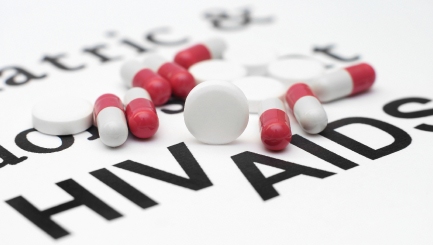Could Social Media be a Powerful Tool in HIV Prevention?
 You may think that Facebook is only good for whining statuses and the occasional picture of a cute cat, but researchers at UCLA have found that social networking sites could serve as effective tools for preventing HIV among those whose wellbeing is more at-risk for the infection.
You may think that Facebook is only good for whining statuses and the occasional picture of a cute cat, but researchers at UCLA have found that social networking sites could serve as effective tools for preventing HIV among those whose wellbeing is more at-risk for the infection.
For the study, which was published in the peer-reviewed journal Sexually Transmitted Diseases, investigators created health-related Facebook groups which African American and Latino men who have sex with men used to discuss such things as HIV knowledge, stigma and prevention and ultimately to request at-home HIV testing kits.
According to principal investigator Sean Young, an assistant professor of family medicine at the David Geffen School of Medicine at UCLA, ‘Researchers, policymakers and public health professionals are hoping that social media can be used as a tool for improving health research and solving health and HIV prevention-related issues. This study helps direct us toward that goal by suggesting that participants will use social media to learn about HIV prevention and that those who talk about HIV prevention over social networking groups are not just talking about it – they are acting on their words by getting an HIV test.’
Young, who is also a member of the Centre for HIV Identification, Prevention and Treatment Services (CHIPTS) at UCLA, added that the study shows how social networking can be utilised to collect and analyse data: ‘Having one platform that allows multiple types of data collection and analysis can save money and improve the accuracy of research findings.’
The sexual health of Latino and African American men who have sex with men has been shown to have a disproportionately high risk of HIV infection, the researchers said, which is why they recruited 112 participants for the 12-week intervention and one-year follow-up, 90% of whom were African American or Latino. The men were either assigned to a general health Facebook group or one for HIV prevention that was not accessible or searchable by non-group members.
The results were that participants in the HIV-prevention group freely discussed HIV-related topics such as prevention, testing, knowledge, stigma and advocacy. Those who posted about prevention and testing were over 11 times more likely to request a testing kit than those who didn’t, and men over the age of 31 were more likely to discuss these topics, as well as stigma and advocacy topics, than younger group members who were keener on HIV knowledge-related discussions.
The researchers concluded that, whilst the LA-based findings may not be applicable to all men from other areas or countries, ‘As social networking usage continues to grow among at-risk populations, it becomes important to understand how to use these innovative and engaging social technologies for population-focused STD prevention.’


Comments are closed.